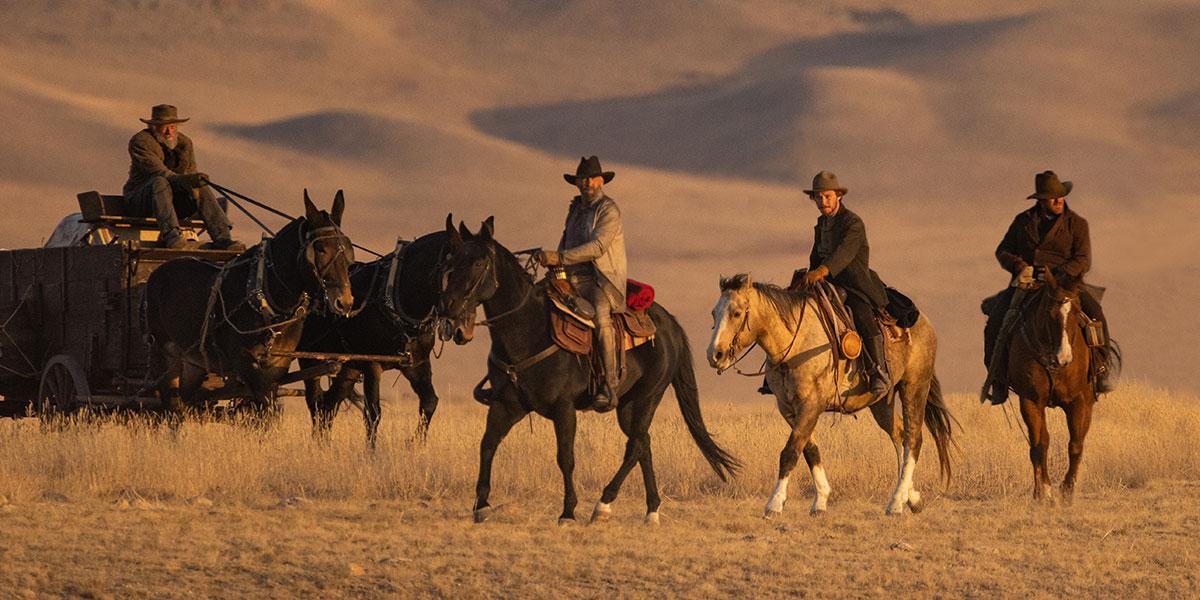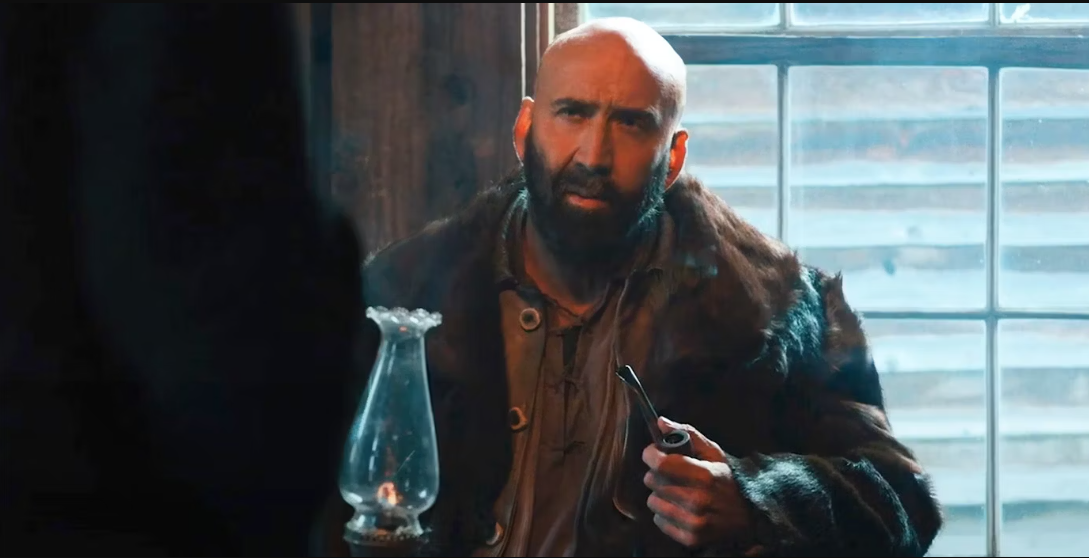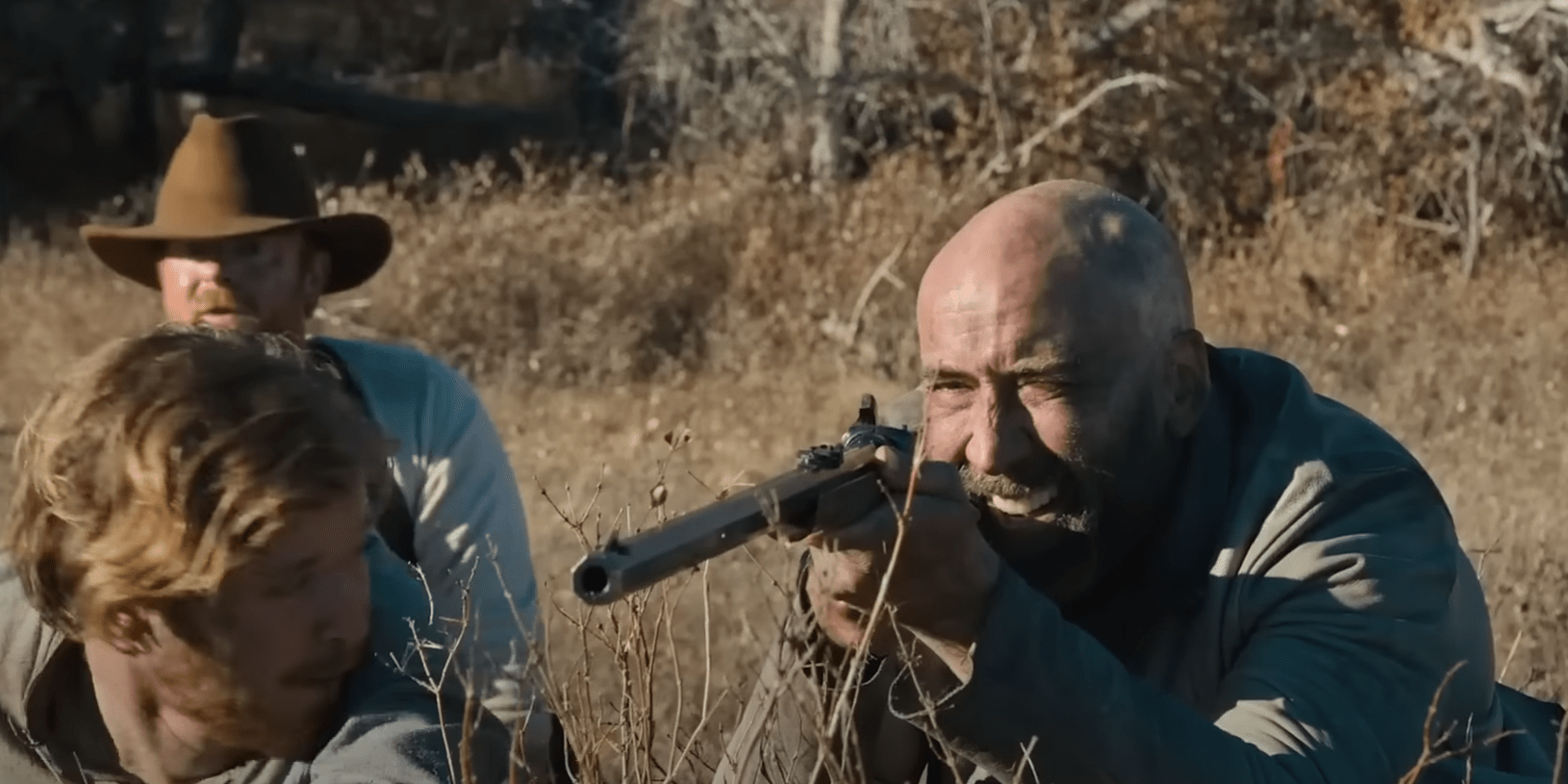Directed by Gabe Polsky, ‘Butcher’s Crossing’ is a Western drama featuring the likes of Nicolas Cage, Jeff Medley, and more. Set against the backdrop of the late 19th century, ‘Butcher’s Crossing’ recounts the journey of Will Andrews, a bored Harvard student, to the little community of Butcher’s Crossing. To satisfy his need for excitement and financial gain, he signs up for a buffalo hunting trip.
Through it all, the crew must grapple with the ethical dilemmas of their actions as they encounter life-threatening obstacles in the harsh environment of their unrelenting buffalo hunt. Unfortunately, when they return to the Butcher’s Crossing with their buffalo skins, they find the market has shifted. The movie explores ideas of disillusionment, greed, and the collision between human ambitions and the indifference of nature. This film deftly dissects the romanticization and the harsh reality of the American frontier. Given the film’s analysis of realistic themes, one might wonder if ‘Butcher’s Crossing’ is based on real events. Here are the facts.
Is Butcher’s Crossing a True Story?
No, Butcher’s Crossing is not based on a true story. Instead, the movie draws inspiration from John Edward Williams’ best-selling Western fiction novel of the same name. However, this by Gabe Polsky-directed Western fiction does take some creative liberty for dramatization. Gabe Polsky is a well-known name in the industry, hailed for directing highly successful movies like ‘Red Army,’ ‘In Search of Greatness,’ ‘The Motel Life,’ and more. In addition, Gabe Polsky is also credited for penning the screenplay alongside Liam Satre-Meloy and John Williams.

When asked about his decision to adapt John Edward Williams’ novel for the silver screen, Polsky stated that the themes of the story resonated deeply with him, presenting a fundamental exploration of life’s meaning and purpose, as well as a curiosity about human nature, ego, and the driving forces behind our actions. The story of what happened to the buffalo remained largely untold in film, and Polsky had a great affection for the outdoors and the mountains. However, it was primarily the narrative’s ability to encapsulate the universal human journey that drew him in. From an initial state of naivety and romanticism to the sobering experiences and choices one makes along the way, Polsky found it to be a beautifully tragic story.

The movie is littered with heavy themes like man vs. nature, corruption, idealism, loneliness, and more. The protagonists in the movies are led by their desire for riches to go on a buffalo hunting trip, which provides the setting for the movie’s examination of greed. Furthermore, when they’re busy killing animals for their own financial gain, the movie brilliantly explores the ethical conundrums they encounter.
The idea of man’s fight against nature is brought to the forefront by the trip that Will Andrews (Fred Hechinger) and his friends take into the wilderness. In the course of their struggle to triumph against nature, the protagonists in the movie go through a variety of arduous experiences, both physically and emotionally. The decisions they make show how they have grown and how they have persevered despite their circumstances.

What separates ‘Butcher’s Crossing’ from the rest of its herd is its exploration of “The Myth of the Frontier” via the eyes of Will Andrews. The movie’s protagonist, Will Andrews, is a great representation of this idea. He’s a young man from Boston’s upper class who decides to forgo his Harvard education in favor of a life on the frontier. His motivation stems from idealistic Western stereotypes that paint the region as a haven for risk-taking and self-discovery. Will’s willingness to leave behind his easy life in the East and make the difficult trek to Butcher’s Crossing is reminiscent of the mythic appeal of the frontier.
Therefore, ‘Butcher’s Crossing’ is not rooted in reality but deals with many realistic themes associated with the Wild Wide West. ‘Butcher’s Crossing’ delves into the pointlessness of human effort in the face of immense, unstoppable forces. Especially in a setting where existence is precarious, the character’s experiences and acts prompt philosophical reflection on the meaning and value of life.
Read More: Best Western Movies on Netflix


You must be logged in to post a comment.